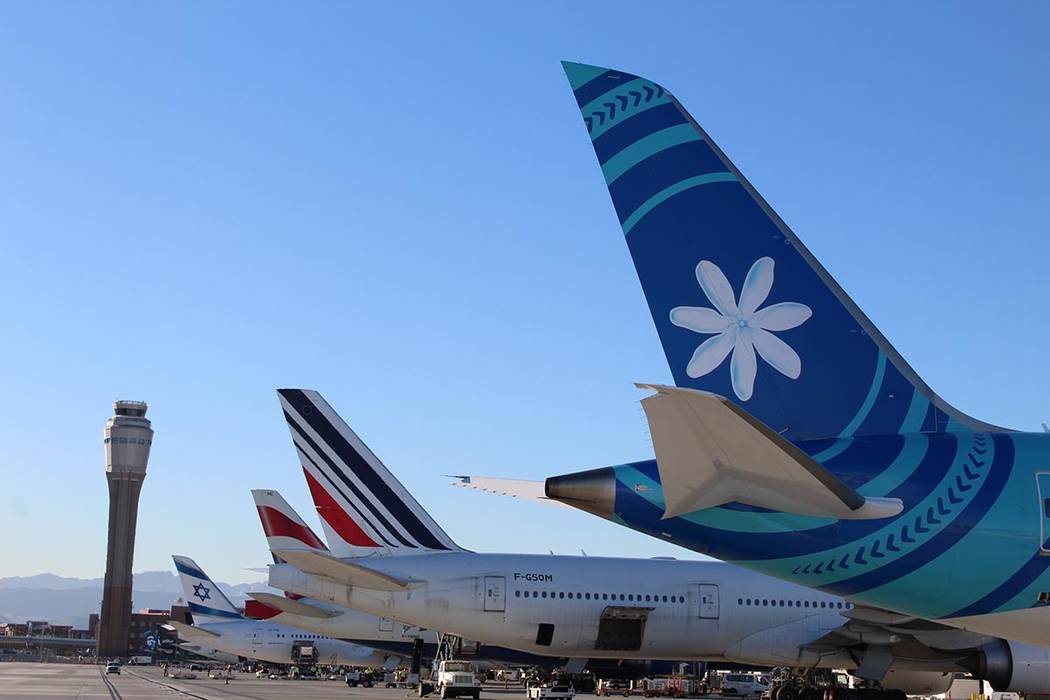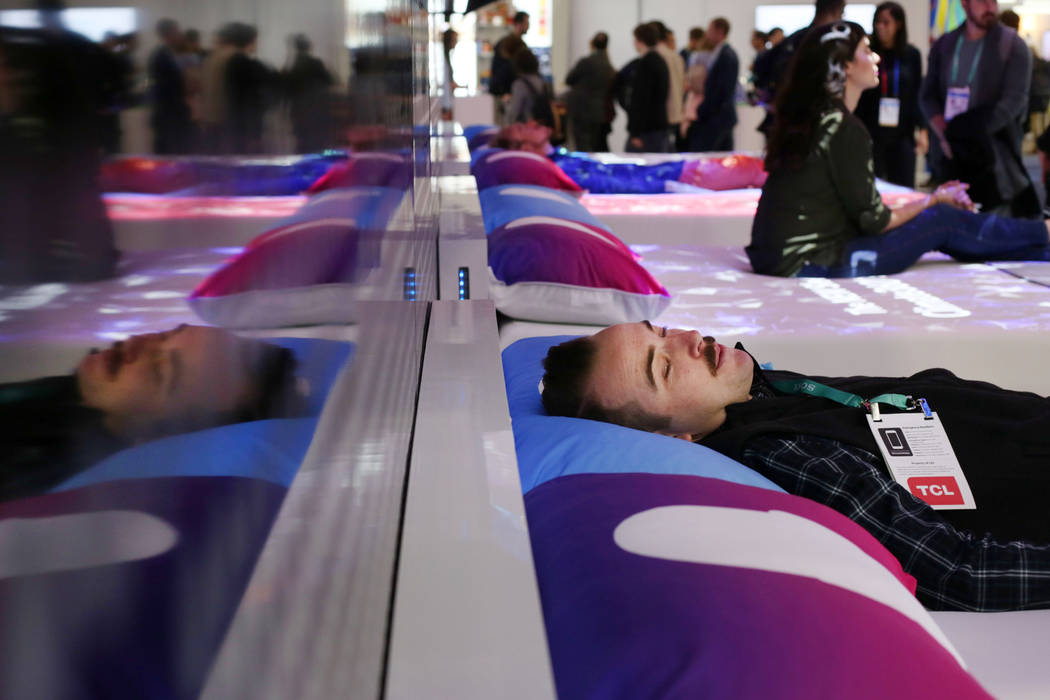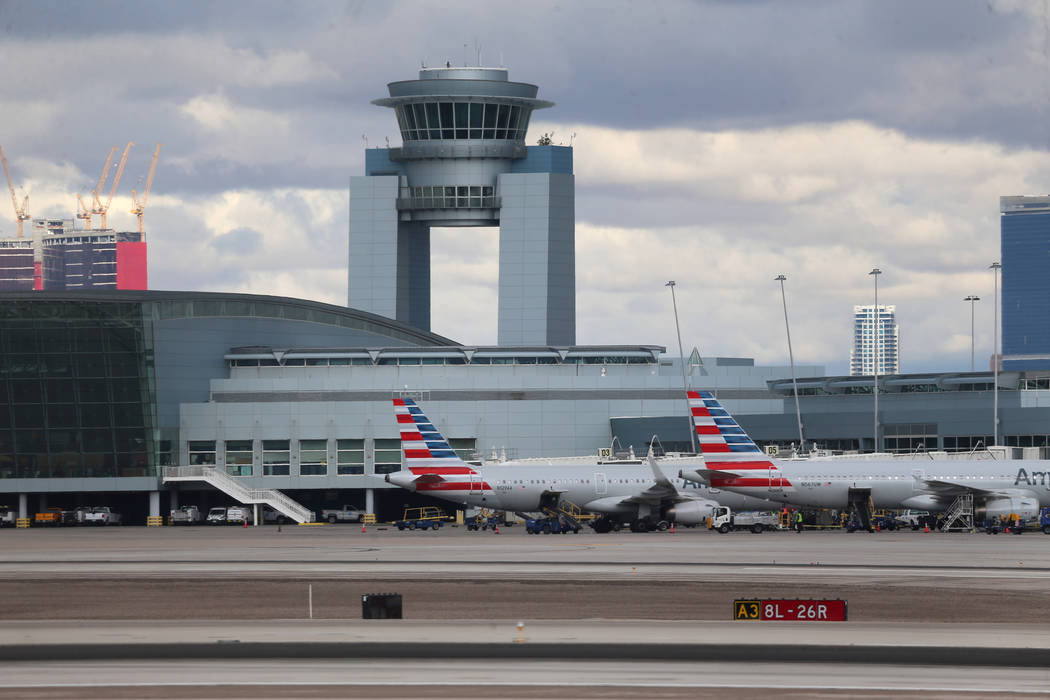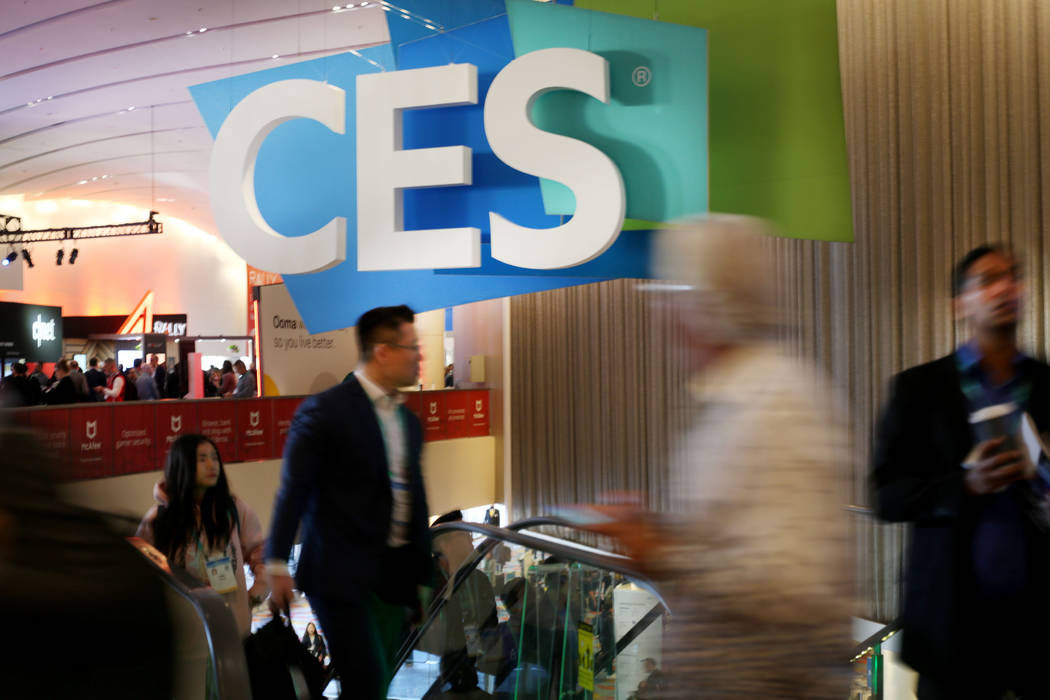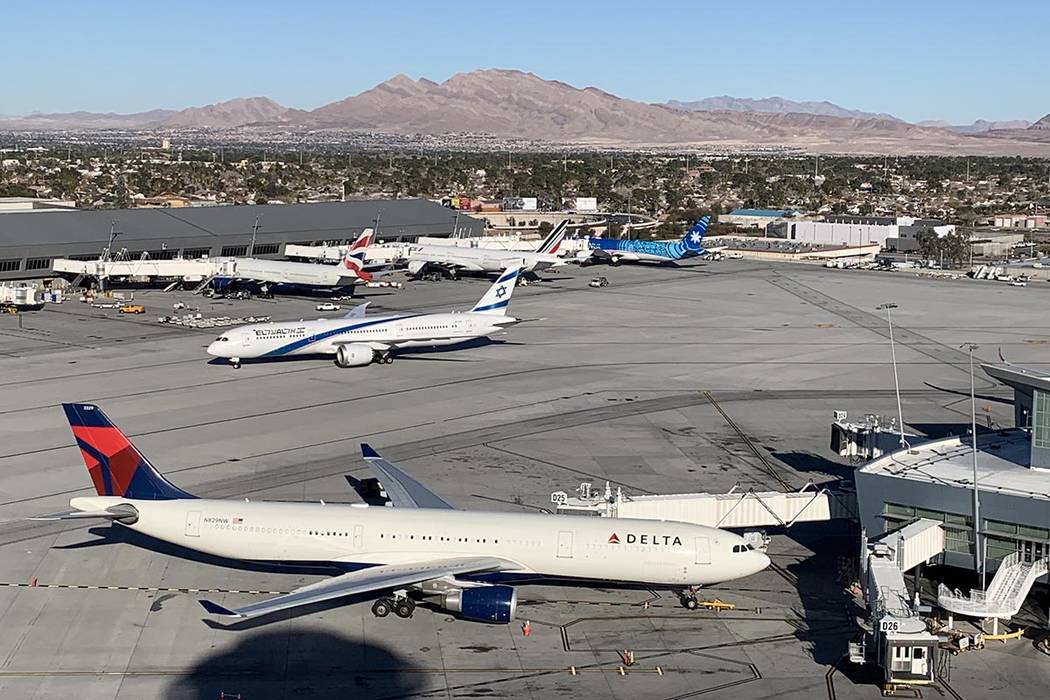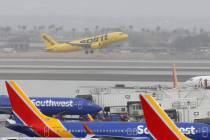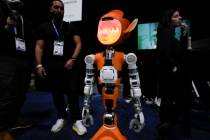McCarran airport plays big role behind the scenes at CES
Getting nearly 200,000 CES attendees and workers to and from Las Vegas for the largest annual trade show is a task that largely falls to McCarran International Airport and air carriers.
And this year’s extra passenger load is setting a record.
“Last year we had about 38,000 extra seats for CES,” said McCarran spokeswoman Christine Crews. “This year it will be 49,000, with 30,000 of those on international flights.”
The Jan. 4-11 period will see nearly 1,200 flights on peak days, compared with an average of about 1,000 aircraft a day normally, Crews said.
Even some airlines that do not provide regular service to McCarran — including Air France, sister airline Air Tahiti Nui and La Compagnie — arranged for trips to and from Las Vegas for the consumer electronics show.
Nine international carriers, including KLM, British Airways, Virgin Atlantic, Air Mexico, El Al, Korean Airlines, LEVEL, Hainan and Air Canada added flights from various cities, including several from Japan, Mexico, Europe and elsewhere.
In addition, American Airlines added several flights from Japan and Delta added flights from Amsterdam, Paris, Tokyo, London, Seoul, Taiwan and China.
Domestic airlines added several flights from tech hubs, such as Austin, Texas, and San Jose, California, as well as other large cities, to get CES attendees to Las Vegas and back home.
No event compares to CES
The airport has handled extra capacity for various other events over the years, but nothing to the extent of CES.
“We might get about 20 flights added from Mexico-based airlines for Mexican Independence Day or for a big fight, but nothing compared to CES,” Crews said. “We get through CES and then we starting planning for another nine to 10 months (for the next show), and that includes everybody at the airport from management to air operations to (ground) transportation people. We meet regularly and often. We plan on contingencies for like when a flight has mechanical trouble and has to be parked elsewhere for another plane to get to a gate.”
Planning is vital to handling extra fliers. Many airlines “upgauge” during CES, meaning they increase capacity, perhaps using an aircraft that will handle 250 passengers instead of 140, for example.
“It is really a finely choreographed dance at the gate with so many extra international flights that have to go to specific gates in order for fliers to be processed through U.S. Customs and Border Protection,” Crews said.
She said the Transportation Security Administration works with all air carriers to find out what passenger loads are coming in and at exactly what hours to adjust their staffing levels and to move TSA screeners from place to place at McCarran.
Communicating with passengers also is critical to success, Crews said.
“We want them to have a seamless situation,” she said. “The added digital signage at the airport over the past three to 10 years helps us change messages in real time, which is vital to accommodating the high volume of traffic by tailoring messages to a specific audience. Boots on the ground to answer questions and direct passengers is essential.”
For example, some CES fliers will arrive at an international terminal but depart through a domestic gate. Getting them the correct information is critical, she said.
Sunday and Monday were the two busiest arrival days while Thursday and Friday will be extremely heavy days for departures.
The Las Vegas Convention and Visitors Authority puts the economic impact of CES 2020 at $283.3 million in less than a week.
Contact Marvin Clemons at mclemons@reviewjournal.com or at 702-383-0217. Follow @Marv_in_Vegas on Twitter.



